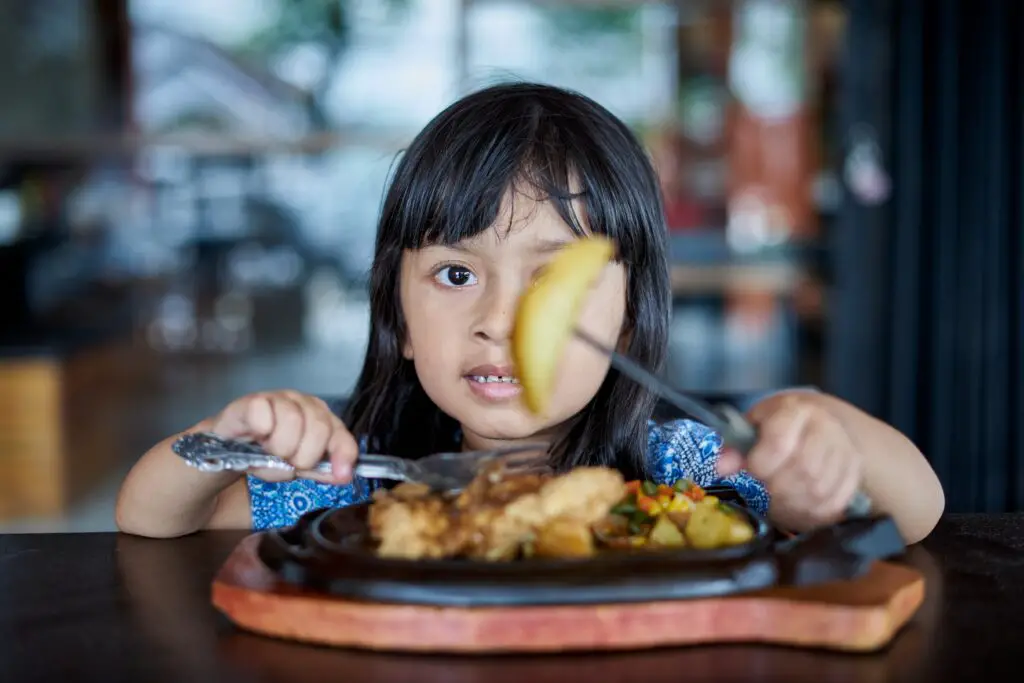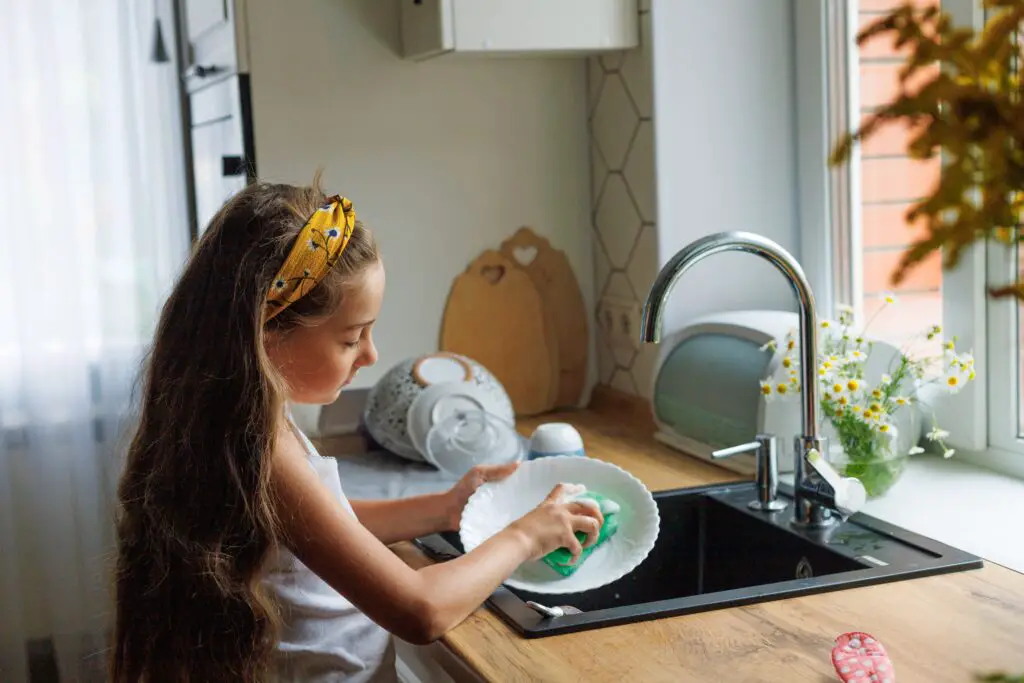1. “Don’t Waste Food!”

This rule was often plastered on the walls of kitchens, reminding everyone to clean their plates. Growing up, it felt like a commandment of sorts—after all, how could you ever waste food when there were children starving in other parts of the world? While the intention behind this was always to promote appreciation for what you had, it also led to some uncomfortable moments of overeating. People were guilted into finishing their meals, even when they weren’t hungry anymore, just to avoid seeming wasteful.
Fast forward to today, and we’re realizing that over-consumption can be just as harmful. Food waste is still a big issue, but it’s also okay to save leftovers or compost rather than stuffing yourself to meet an arbitrary goal. We’ve grown to understand that being mindful of portion sizes and not forcing yourself to finish every last bite can be a healthier choice for both the body and the environment.
2. “Clean Your Plate!”

Another staple kitchen rule, this one was often associated with the idea that you must eat everything in front of you, no matter what. It wasn’t just about not wasting food—it was about making sure nothing went uneaten. The idea was rooted in a belief that leaving food behind was somehow disrespectful or wasteful, but it also created unhealthy eating habits. It wasn’t uncommon for children to eat well beyond their hunger just because they were told to finish everything.
This concept has slowly been fading as we learn more about mindful eating and portion control. Today, there’s more focus on listening to our bodies and recognizing when we’re full, rather than eating for the sake of clearing our plates. Now, the idea is more about wasting less and savoring the meal, with an understanding that eating should be a satisfying, not forced, experience.
3. “No Talking with Your Mouth Full!”

A rule that’s been drilled into many of us since childhood, this one was often followed by a disapproving glare from the kitchen table. The idea behind it was to encourage polite eating habits and prevent the messiness of talking while chewing. As kids, we were reminded time and again not to engage in conversation while our mouths were full of food, likely due to the social discomfort it caused.
While it’s still polite to avoid speaking with your mouth full, this rule has evolved. In today’s culture, there’s a greater emphasis on family meals and sharing conversation around the table. Eating is no longer just about manners; it’s about connection, and sometimes, a little messiness adds to the warmth of the moment. The key now is balancing good manners with meaningful interactions.
4. “Don’t Leave the Kitchen Until the Dishes Are Done!”

For some, this rule was a staple in making sure the kitchen stayed spotless. No matter how tired you were from a long day of cooking and eating, the work wasn’t done until the dishes were washed. The idea was that no one should relax until the kitchen was back in order, which could sometimes feel like a never-ending chore after a meal.
These days, however, we’ve come to realize the importance of delegating responsibilities and not overburdening one person with all the post-dinner clean-up. Families and households are more likely to work together, sharing the task of cleaning up to make it more manageable for everyone. Now, it’s less about immediately jumping into dish duty and more about dividing tasks so that the kitchen stays clean without any single person feeling overwhelmed.
5. “Take Your Shoes Off at the Door!”

This one wasn’t just a kitchen rule but a rule for the entire house. It was often enforced to prevent dirt from being tracked in and ruining the clean floors. In kitchens, where cleanliness and hygiene were always top priorities, taking off shoes seemed like a no-brainer. It made sense to keep the area where food was prepared free from outside contaminants.
But as times change, so do home cleanliness standards. Many homes now have carpets, hardwood floors, and other surfaces that are easier to clean and maintain without the strict “no shoes” rule. People have become more relaxed about it, with many opting to wear house slippers or indoor-only shoes to keep the floors clean, without completely banning outdoor footwear. There’s a growing awareness that cleaning methods and materials can help maintain hygiene just as well.
6. “Don’t Leave the Table Until You’ve Said Grace!”

A deeply rooted tradition in many households, this rule revolved around pausing before meals to give thanks for the food. Saying grace at the table was a ritual that encouraged reflection and gratitude, especially in homes with strong religious or cultural traditions. While many still follow this practice, others have moved away from it, either because their beliefs changed or because they found the tradition too rigid for their lifestyle.
In modern kitchens, the emphasis is less on ritual and more on the communal aspect of sharing a meal. Families and friends are less likely to feel obligated to say grace in the traditional sense and instead focus on sharing meaningful conversations or moments of appreciation together. There’s a trend toward gratitude without strict rules, where the feeling of thankfulness can be expressed in more personalized ways, according to the preferences of those gathered around the table.
